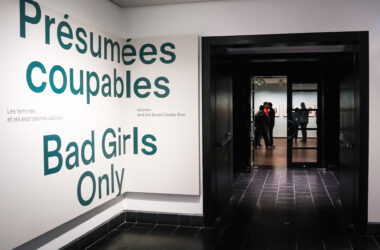 Alice Walker
Alice Walker Alice Walker
Alice WalkerMordecai Richler never attended McGill University, but it’s likely the university’s administrators wish he had.
Richler, the acclaimed Montreal novelist whose works depict the city in gritty detail, is the namesake of McGill’s new writer-in-residence program, which will bring two authors—one Anglophone, one Francophone—to McGill to teach one class each and deliver periodic lectures. The first two writers-in-residence will start next year.
Last week, McGill hosted a pub crawl at two Crescent Street bars Richler used to frequent. The event, a fundraiser for the writer-in-residence program, started at Winnie’s Bar before moving across the street to Ziggy’s, and hosted several of Richler’s friends and former drinking buddies, who told barroom tales about the writer.
“To me, he was a friend first and writer second,” said Jack Rabinovitch, the real estate magnate who attended Baron Byng High School on St. Urban Street with Richler in the 1940s.
Other speakers included two longtime Gazette contributors: Bill Brownstein, a city columnist, and Terry Mosher, who has penned cartoons for the newspaper under the “Aislin” moniker since the 1970s.
“I was very fond of Mordecai,” said Mosher, who noted that he’d drawn 50 to 60 cartoons featuring Richler. “He was at his best when you met him alone.”
As he showed Richler cartoons to the crowd, Mosher recalled going to Montreal Expos games with the author. After hanging out for years, Mosher discovered both of them had snuck into Canadiens’ games at the Forum as teenagers.
Rabinovitch and the other speakers, who were almost all Anglophone Montrealers, spent as much time discussing Richler’s politics as his literary output.
In the decades following Quebec’s Quiet Revolution, Richler became an outspoken critic of French language laws and other nationalist measures, drawing the ire of the province’s political leadership. Years ago at the Ritz-Carlton in Toronto, Rabinovitch said he and Richler sat drinking for three hours because the writer refused to leave the bar before Bernard Landry, the Quebec nationalist and future premier, who hated Richler.
Richler lived in Paris and London as a young man, but he spent most of his life in Montreal, despite his frustrations with what he perceived as the province’s growing hostility toward Anglophones. As he grew older, he found Quebec somewhat more inhospitable.
“He was a lot more comfortable on the streets of London than on the streets of Quebec City,” Mosher said.
Richler loved talking about politics and baseball at the Crescent Street bars where he hung out, several speakers noted, but he disliked discussing his novels. But more than his political commentary, the novels—especially The Apprenticeship of Duddy Kravitz, his breakout success in 1959, and Barney’s Version, the film of which premiered earlier this month at the Toronto International Film Festival—are what Richler is most remembered for.
Speaking at Ziggy’s at the end of the pub crawl, Brownstein, the Gazette columnist, called Barney’s Version one of his “favourite books of all time.” Richler, he said, taught him that writers didn’t need to wallow to produce meaningful work.
“You didn’t have to starve in a garret,” Brownstein said with a laugh. “You could have a good time.”








